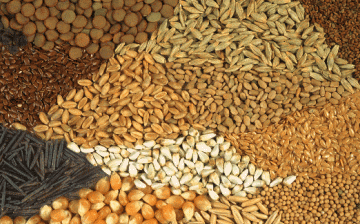Germinating seeds: basic rules and subtleties
The term "seed germination" is used to refer to the period of time from the planting of the seed to the production of viable, open-planted, strong seedlings. Few types of cultivated plants are suitable for sowing in the place of direct growth without preliminary germination. As a rule, seed germination should be started at the very beginning of spring, or even at the end of winter: in this case, closer to the arrival of heat, you will get stronger healthy plants.
The main task of this process is to extend the growing time of the culture and, as a result, to obtain a larger number of plants from the germinated seed, which, among other things, will be much more resistant to temperature extremes, unfavorable weather conditions and other negative factors. In some cases, germination is used to obtain an earlier harvest.
Germination of seeds should be carried out in well-heated and well-lit rooms, while boxes or pots with soil are best placed on windowsills facing the south, or in greenhouses specially designed for this purpose. Separately, it should be emphasized that if the seeds are sown in boxes even in winter, when the daylight hours are short enough, they should definitely arrange additional lighting. Germinated seeds need very careful care: they must be regularly, but at the same time, carefully watered, all weeds removed from the soil, and also thinned from time to time, leaving only the strongest seeds suitable for further cultivation.




Clean water, moderate temperature is the key to germination of most cereals. However, if the water starts to stagnate and the grains are soaked for too long, some of them may deteriorate.